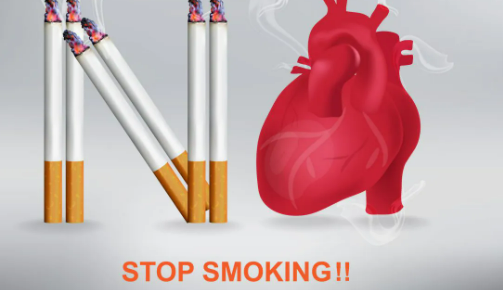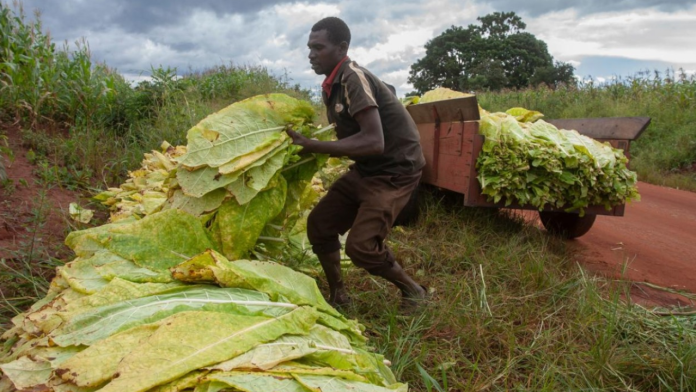A non-governmental organisation, Nigeria Tobacco Control Alliance, has decried the high cultivation of tobacco in the African region.
NTCA said tobacco cultivation has increased in Malawi, Kenya, Uganda, and Zambia in recent years.
Speaking at a Press briefing to commemorate the World No Tobacco Day, the chairman of NTCA, Akinbode Oluwafemi, said, “In Nigeria, tobacco cultivation occurs primarily in Kwara, Osun, Oyo, and Sokoto states.
The annual World No Tobacco Day campaign, which holds every May 31, is an opportunity to raise awareness on the harmful and deadly effects of tobacco use. This year’s theme is ‘Grow Food, Not Tobacco.’
“During tobacco cultivation and curing, wet tobacco leaves produce nicotine and other toxins that are absorbed into the body. This causes green tobacco sickness among farmers and farm hands.

“Tobacco growers are also known to suffer from respiratory and neurological disorders due to exposure to tobacco leaves,” Oluwafemi said.
Oluwafemi, who was represented by the Programme Coordinator, Chibuike Nwokorie, said the tobacco industry paints a picture of economic prosperity among tobacco farmers, however, in reality, tobacco farmers are poor.
“According to the United Nations, over 25 million people in Nigeria are facing hunger, and globally, that figure stands at over 300 million people.
“In the face of this looming food insecurity, large portions of arable lands are turning into barren wastelands from tobacco cultivation.
“Article 17 of the World Health Organization Framework Convention on Tobacco Control encourages parties to promote economically viable and sustainable alternatives to tobacco farming.
“In Nigeria, the Federal Ministry of Agriculture and Rural Development is responsible for championing this objective. However, it is unclear how much land is used for tobacco farming in Nigeria. This critical data gap makes it difficult to identify and plan interventions for tobacco farmers,” Oluwafemi said.
He, however, urged the Federal Government to champion the strengthening and implementation of tobacco control laws to protect the health of Nigerians.
He called on the Federal Ministry of Agriculture and Rural Development to make known the extent of tobacco farming in Nigeria and roll out plans to help tobacco farmers’ transition to nutritious and healthy crops such as maize, cassava, guinea corn, and even livestock.
“The Federal Ministry of Health, Standards Organisation of Nigeria, Federal Ministry of Agriculture and Rural Development, Nigeria Customs Service, the Nigeria Police Force, the Nigeria Security and Civil Defense Corps, and all agencies saddled with the implementation of the National Tobacco Control Act must synergize, share information and resources and work cohesively for the implementation of these laws.
“Your Excellency Bola Tinubu, we congratulate you on your recent inauguration as President of Nigeria. It is important that as you begin your administration, you are made aware of several burning tobacco control issues. You have promised Nigerians that you will hit the ground running, and we want to charge you to apply the same energy to tobacco control.
“Albeit with challenges, we achieved the National Tobacco Control Act, 2015, during former President Goodluck Jonathan’s administration. We also achieved the National Tobacco Control Regulations, 2019, during Former President Muhammadu Buhari’s administration. What is left is yours to do, and you can champion the strengthening and implementation of our tobacco control laws to protect the health of all Nigerians in keeping faith with the oath you solemnly swore on May 29, 2023,” he added.
According to the World Health Organisation, this year’s theme aims to raise awareness about alternative crop production and marketing opportunities for tobacco farmers and encourage them to grow sustainable, nutritious crops.
The theme also seeks to expose the tobacco industry’s efforts to interfere with attempts to substitute tobacco growing with sustainable crops, thereby worsening the global food crisis.
The WHO Regional Director for Africa, Dr. Matshidiso Moeti said, “Tobacco growing and production exacerbate nutrition and food insecurity.
“Tobacco farming destroys the ecosystems, depletes soils of fertility, contaminates water bodies, and pollutes the environment.
“Any profits to be gained from tobacco as a cash crop may not offset the damage done to sustainable food production in low- and middle-income countries.”
According to her, the rising number of tobacco users in the African region is due to the increased production of the product and aggressive marketing by operators in the industry.


